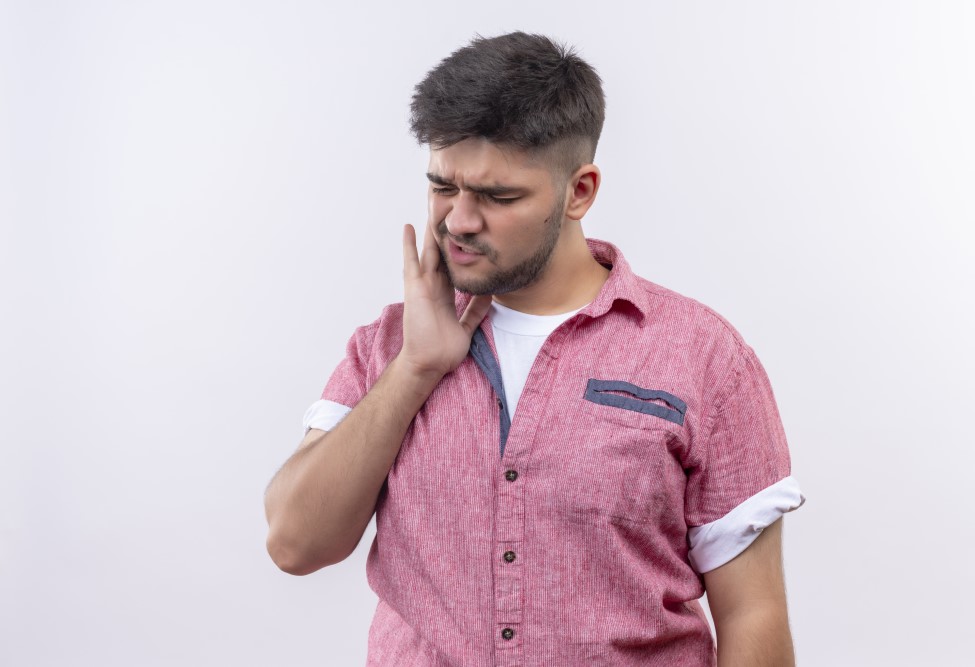Temporal Mandibular Joint Disorder is a common joint condition that causes pain and discomfort when the mouth is opened or closed. Whether your condition is minor and limited to making a small clicking sound or serious enough to make you suffer excruciating pain, do not let it go undiagnosed. A few, very simple treatments can easily alleviate this condition by realigning the mandibular bone.
What is TMJ Disorder?
Temporomandibular disorder refers to different conditions that impact the temporal mandibular joint, facial nerves, and jaw muscles. TMJ pain can be triggered by the twisting of the jaw, opening or closing of the mouth or due to side-motion jaw movements. This condition can occur over time, as the muscles and ligaments holding the TMJ get damaged or stretched, moving the lower jaw out of alignment. It can also happen all at once in case of a traumatic event where the jaw slides too far out of the alignment, adversely impacting the functions of chewing and speaking.
What Are the Causes of TMJ?
Not much is known about the cause of this condition but there is a certain set of behaviors associated with it. A major cause of TMJ disorder is teeth grinding which puts immense pressure on the joint which can aggravate an already inflamed joint. Teeth clenching will also contribute to the condition as it causes the facial and jaw muscles to tighten which puts more pressure on the joint. Apart from teeth clenching and grinding, arthritis can also impact the temporal mandibular joint. Stress is one more factor that aggravates TMJ especially if you are doing any strenuous physical activity like lifting heavy objects as the jaw muscles get overused by the grinding or clenching of teeth.
What Are the Symptoms of TMJ?
Those suffering from temporomandibular disorder often report the following symptoms:
- Frequent headaches and neck aches
- Pain in the ear and in the areas around it
- Pain in the jaw which becomes more prevalent in the morning or late noon
- Jaw pain when yawning, biting, and chewing food
- A clicking sound when the mouth is opened or closed
- Tenderness and soreness of the jaw muscles
- Sensitivity in the teeth
- Difficulty in opening and closing the mouth
TMJ is two times more likely to affect women (specifically the ones who belong to the childbearing age bracket) as compared to men.
Orthodontic treatment for TMJ
-
-
Braces or Invisalign:
In many cases, orthodontic appliances like braces or Invisalign can be used to correct misaligned teeth or malocclusion, which can contribute to TMJ issues. By repositioning the teeth and improving the bite, stress on the TMJ can be reduced.
-
Splints or Mouthguards:
These removable devices are custom-made to fit your teeth and help stabilize the jaw joint. They can provide temporary relief by reducing clenching or grinding and promoting a more relaxed jaw position.
-
Surgical Treatment Options:
In some cases, when non-surgical methods aren’t sufficient, surgical intervention may be recommended. It’s important to note that surgery is typically considered only when other conservative treatments have been explored and found to be ineffective. Surgical options may include:
- Arthrocentesis: This minimally invasive procedure involves flushing the joint with a sterile solution to reduce inflammation and improve jaw function.
- Arthroscopy: A small incision is made, and a tiny camera is inserted to examine and treat the TMJ directly.
- Open-Joint Surgery: In more severe cases, open-joint surgery may be required to repair or replace the joint.
-
Collaborative Approach:
Orthodontic treatment for TMJ issues often involves collaboration with other dental specialists, such as oral and maxillofacial surgeons or TMJ specialists. This interdisciplinary approach ensures comprehensive care and optimal outcomes.
-
If you think you have TMJ, get a reliable opinion about orthodontic braces at Thurman Orthodontics. Call 559-439-0425 to schedule your complimentary first visit.
FAQs
-
-
Can braces fix TMJ disorder?
Braces effectively treat TMJ caused by bite issues. By aligning your teeth and jaws, orthodontic treatment eliminates TMJ pain.
-
Can invisalign fix TMJ disorder?
Invisalign reduces TMJ pain by aligning teeth, reducing stress and inflammation caused by TMJ disorder.
-

Dr. Brian Thurman has spent his entire life enjoying all the beauty that California has to offer. A Fresno native, he still escapes to the ocean or the mountains whenever his busy schedule allows. Driven by his love for natural beauty, Dr. Thurman enjoys creating beautiful smiles and healthy bites that last a lifetime. He is proud to be the only Ivy League trained Orthodontist in the Fresno/Clovis area.

